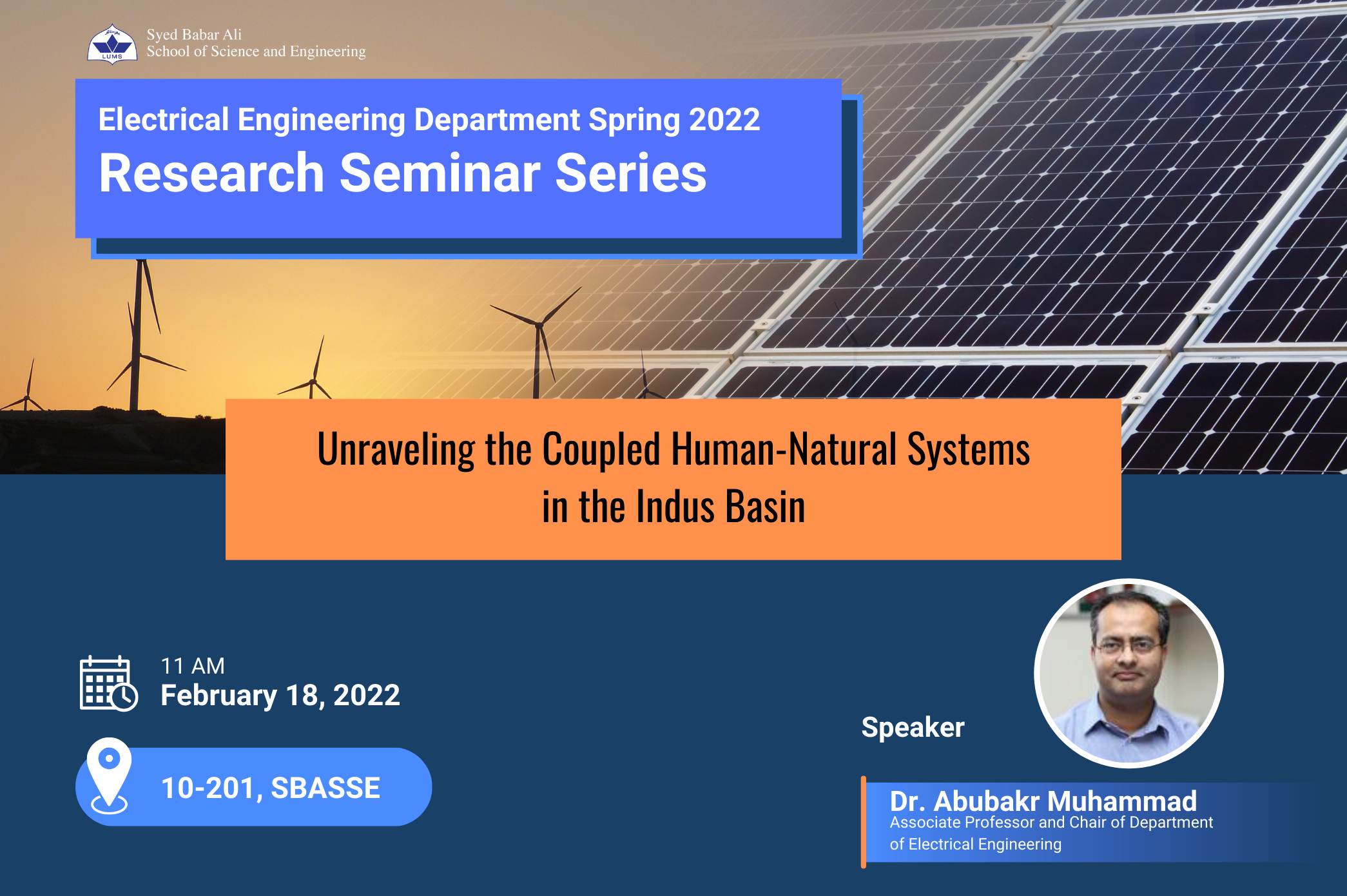
Water-Energy-Food nexus of the Indus
Dr. Abubakr Muhammad is an associate professor and chair of electrical engineering, the founding director of the Center for Water Informatics & Technology (WIT), and the lead for NCRA National Agricultural Robotics Lab at LUMS. He received his Ph.D. in Electrical Engineering in 2005 from Georgia Institute of Technology, USA winning an institute-wide best Ph.D. Dissertation Award. He received postdoctoral fellowships at the University of Pennsylvania and McGill University. Since 2008, his group at LUMS has done applied research in robotics and automation with applications to water, agriculture, and the environment. He has held visiting positions at other top institutes including the University of Oxford, ICTP, and KAUST. He serves on various advisory panels to government agencies and industry on the use of emerging digital technologies.

